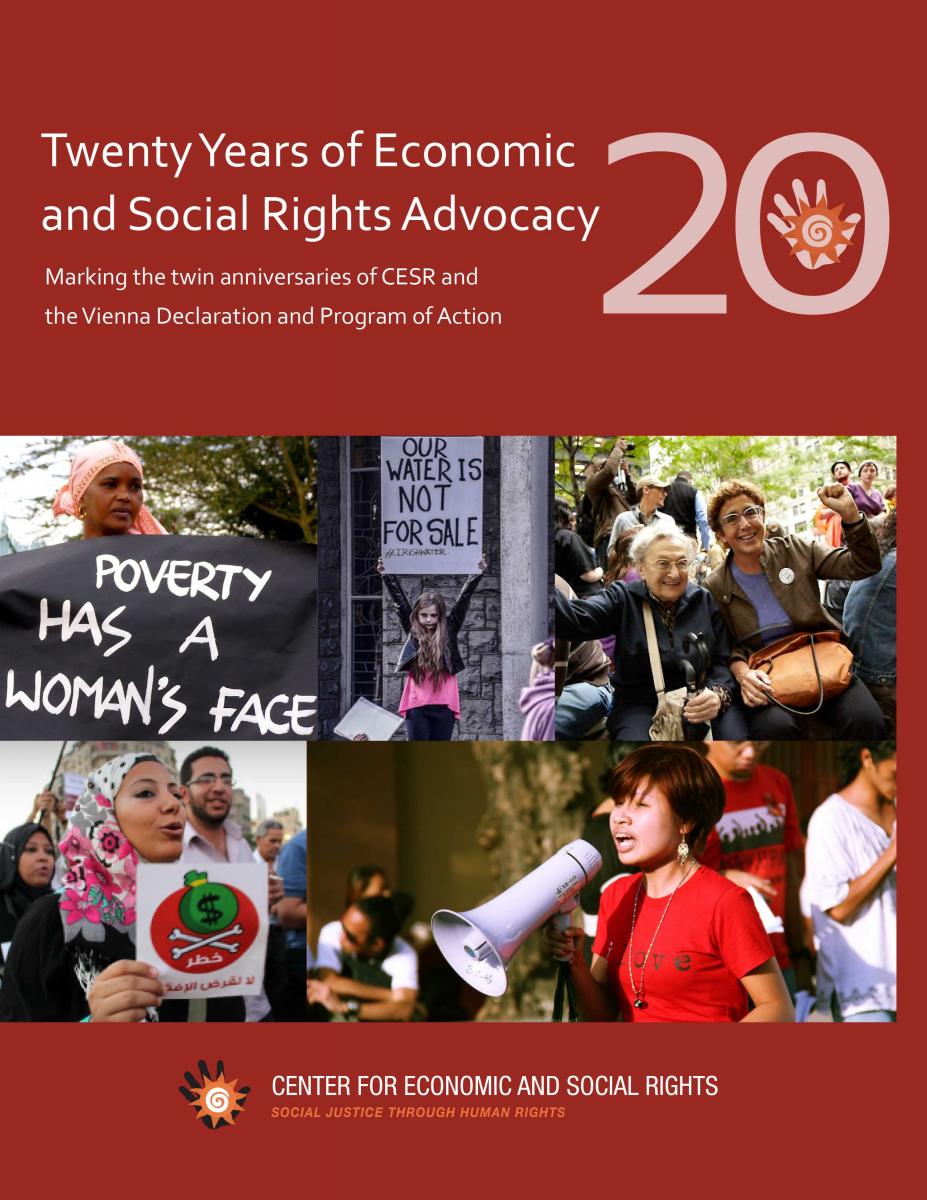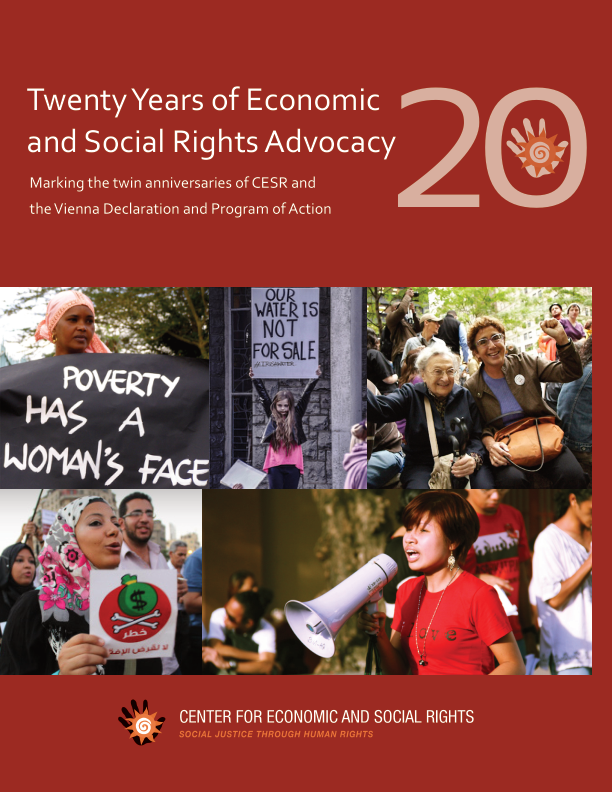 More than twenty years since their re-emergence on the international agenda, are economic, social and cultural rights still a rhetorical aspiration or have there been real advances in how they are enjoyed, claimed and enforced? This and other pressing questions regarding the current state of economic, social and cultural rights (ESC rights) are addressed in a new CESR publication, Twenty Years of Economic and Social Rights Advocacy.
More than twenty years since their re-emergence on the international agenda, are economic, social and cultural rights still a rhetorical aspiration or have there been real advances in how they are enjoyed, claimed and enforced? This and other pressing questions regarding the current state of economic, social and cultural rights (ESC rights) are addressed in a new CESR publication, Twenty Years of Economic and Social Rights Advocacy.
Prompted by the twin twentieth anniversaries of the Vienna Declaration and CESR's founding, this new publication takes stock of the progress made in recognizing, defending and realizing these rights over the past two decades. It distills the outcomes of a series of events CESR organized in 2013 and 2014 which brought together human rights activists and practitioners from across the globe to critically reflect on trends and developments in the economic and social rights field since the Vienna Declaration and Program of Action.
The document includes a foreword by Mary Robinson and contributions from other leading figures from the human rights and development communities, as well as from the indigenous and women's movements.
It is structured along three thematic threads which are woven through the Vienna Declaration and Program of Action, and which are of particular significance for economic and social rights. Human rights in the 21st century global economy, examines advances in applying human rights standards in the sphere of economic, development and environmental policy. Inequality as injustice looks at the evolution of equality struggles since Vienna, including greater attention to different forms of discrimination and inequality (including economic inequality), as well as new understandings of substantive equality. Towards implementation: monitoring and enforcement examines progress and challenges in claiming economic and social rights and seeking justice for violations through the courts and other accountability mechanisms.
The contributors highlight the enormous progress that has been made on each front, particularly in the realm of normative development, legal protection and judicial enforcement. But the publication also highlights how the economic and social rights of millions of people across the globe are under systematic and renewed attack as a result of a number of pervasive trends. These include the imposition of regressive fiscal austerity measures and other policies fuelling economic inequality, the failure to take effective action against climate change, and the consolidated grip that unbridled corporate power now has on both national and international governance.
It is CESR's hope that this concise analysis of the state of the economic and social rights field, drawn from the rich contributions of some of its leading voices, will provide a valuable resource for all those concerned with how human rights can be brought to bear more effectively in confronting economic and social injustice.
"In keeping with the pioneering role it has played for more than 20 years, the Center for Economic and Social Rights offers this timely and forward-looking reflection on the progress made in realizing economic and social rights - I congratulate CESR on this publication, which is an invaluable contribution"
- Mary Robinson, UN Special Envoy on Climate Change
- Twenty Years of Economic and Social Rights Advocacy can be downloaded in pdf format here.
- The report is complemented by a short video with reflections from many of the activists and practitioners who contributed to the publication, which can be viewed here.
